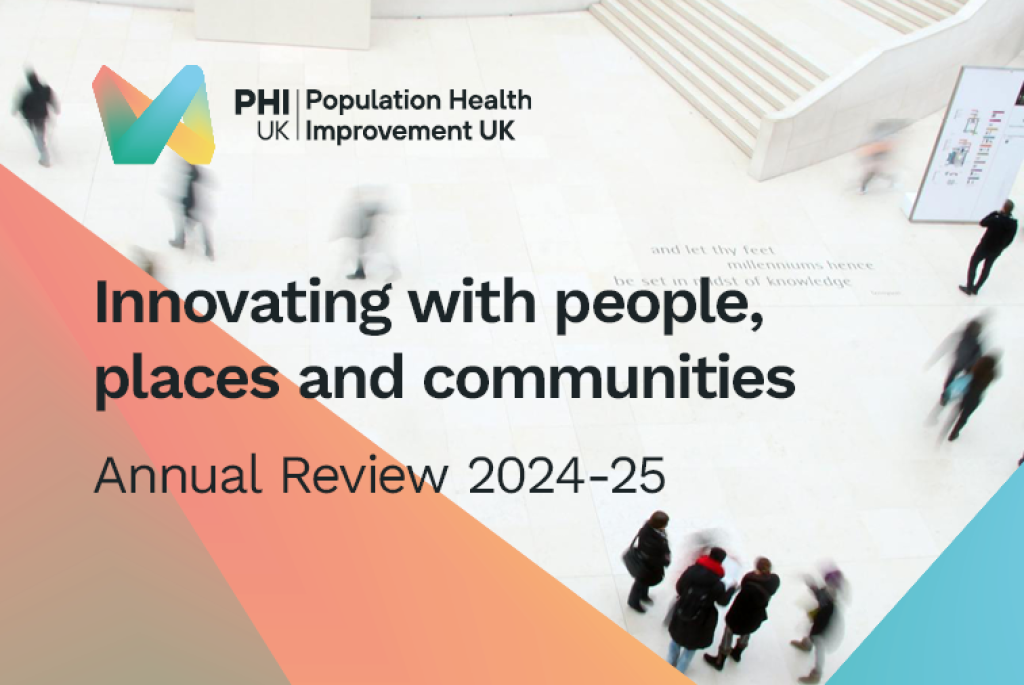A new series of articles by academics, including Local Health and Global Profits director Professor Anna Gilmore, warns that unless governments take urgent steps to address conflicts of interest with harmful industries – including tobacco, alcohol, ultra-processed food, gambling and fossil fuels – efforts to prevent disease and protect public health will fail.
Why addressing conflicts of interest is essential to progress in reducing commercially driven health harms – is co-authored by Professor Anna B Gilmore, Dr Rachel A Barry and Dr Alice Fabbri of the University of Bath’s Centre for 21st Century Public Health, Tobacco Control Research Group and Department for Health. It appears in the newly released June 2025 special issue of the Future Healthcare Journal, guest edited by broadcaster and academic Professor Chris van Tulleken.
In their contribution, Gilmore, Barry and Fabbri focus on the tobacco industry - widely regarded as the original architect of tactics now used by many sectors to delay regulation and influence science and policy. The authors explore the urgent need to recognise and manage conflicts of interest (COIs), arguing that such action is a prerequisite for tackling the global health burden caused by harmful commercial products.
Drawing on decades of research and the lessons of tobacco control, the authors explain how industries with vested interests use partnerships, youth prevention programmes, funding of science, and voluntary regulation schemes to position themselves as responsible actors – while blocking effective public health action behind the scenes.
Anna Gilmore said:
This government has recognised the urgent need to prevent and not just treat ill health, but it has not yet recognised that if the industries causing this harm are at the policy-making table, we will not get the prevention policies we need. The public understand such conflicts. That is one reason why trust in public institutions is at an all-time low. If this government is to restore this trust, deliver its promised ‘clean up’ of public life and prevent ill health, an essential first step is to exclude health-harming industries from policy-making.
Without such action, the NHS will not cope with the vast scale of commercially driven health harms and British taxpayers will continue to effectively subsidise the hugely profitable tobacco, food, alcohol, gambling and fossil fuel industries causing this harm. The time for action is now.
The latest issue of the Royal College of Physicians’ Future Healthcare Journal (FHJ) warns that preventable illness and widening health inequalities in the UK are being driven by the profit-driven actions of global corporations.
Guest edited by Professor Chris van Tulleken, consultant physician, academic and broadcaster, the June 2025 issue of FHJ brings together leading voices in public health to explore how the tobacco, alcohol, food, pharmaceutical and gambling industries actively create conflicts of interest with scientists, clinicians, academics, regulators and charities.
This issue of FHJ calls on decision-makers to recognise and act on the systemic harm caused by commercial industries – particularly tobacco, alcohol, food, gambling and parts of the pharmaceutical sector – where profit-driven tactics are contributing to ill health.
Excerpts from the article, "Why addressing conflicts of interest is essential to progress in reducing commercially driven health harms, published in the June 2025 issue of the Future Healthcare Journal"
If we are serious about putting human and planetary health above profit, we must stop allowing harmful industries to shape the science and policies meant to regulate them. From tobacco to alcohol, gambling, and ultra-processed foods, there is overwhelming evidence that these industries use the same tactics to delay regulation, manipulate science, and present themselves as responsible actors—while continuing to cause significant harm. We must learn from tobacco control and put strong, legally binding safeguards in place across all sectors.
Conflicts of interest are not about individual products—they stem from the fundamental divergence between the profit motives of industry and the public duty of governments and institutions. That’s why affected industries should not be sitting at the policy table or shaping public health strategies. The scale of commercially driven health harms is now so great that it threatens the sustainability of health systems like the NHS. Addressing these conflicts is not radical—it’s essential to good governance.
Funding: The article received no external financial or non-financial support. ABG is supported by ‘Local Health and Global Profits’ (Grant no MR/Y030753/1), which is part of Population Health Improvement UK (PHI UK), a national research network which works to transform health and reduce inequalities through change at the population level.





